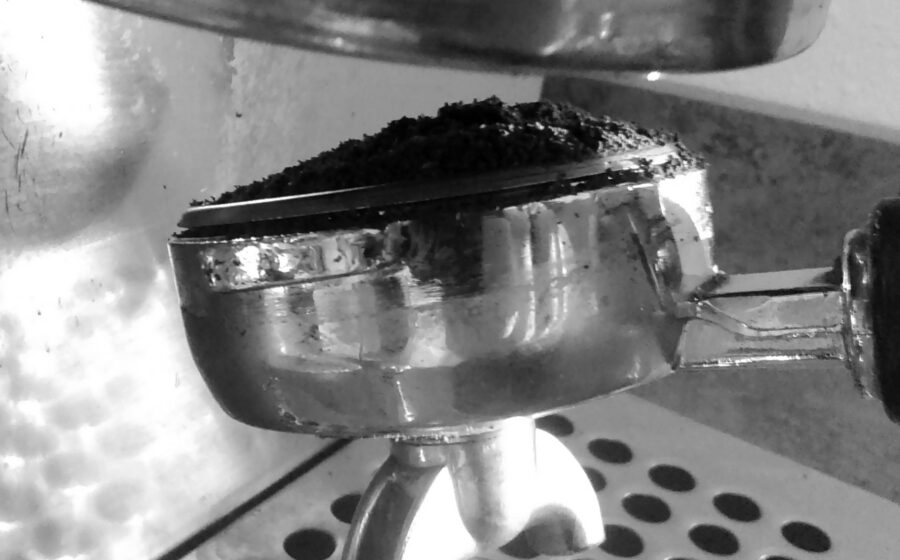Last week, Nathanael May, the director of coffee at Portland Roasting Coffee, made the case for ensuring that training takes its proper place in your café. It’s the first part of a long series on training that May is writing for Fresh Cup. We asked May to take us deeper into why training matters so much.
Why does proper training get missed?
The answer to this has as many variations as there are varieties of coffee in the world. Training often gets missed for the simple reason that people don’t realize they need it. Maybe they received training at a previous café, or they have someone on staff who “really knows coffee” who will be running their business. So much of the training I received when I started in coffee came from people who were teaching me the things that other people had taught them, who had themselves been taught poorly or not at all. A sort of tribal knowledge based on little more than the perceived authority of the person delivering the information gets passed down from generation to generation of baristas, and before you know it, your whole staff is basing their practices on the bad habits of a barista that worked for you years earlier.
An established training curriculum delivered by well-developed teachers can help avoid this good-intentioned disaster from happening.
What do baristas or owners do to find out whether or not their drinks are as good as they could be?
This is a tricky one, because how can you really know without training? You could ask your customers what they’d like to see you do better, but they’re probably not experts either, so you’re hearing imperfect feedback. Training truly is the pathway to improvement, including knowing whether you need to improve. Training is beautiful, because it either confirms that you are doing things excellently, or shines a light on the things that need work. Even in situations where your practices are right on, there are probably still areas to be focused on to create legendary experiences for your customers.
It sounds repetitive, but training is the answer here as well.
Are we at the point as an industry where a cafe can survive without proper training? I know that if it’s clear a barista doesn’t know what she’s doing at the espresso machine or that no care is taken with the brewed coffee, it will affect my order, but if it’s early morning I’m still getting a coffee (or maybe a milk with some coffee). I won’t go back though. Are more customers punishing poor execution?
I think we’re at a point as an industry where a café can barely begin without proper training. Our potential customers have so many choices for where and how they get their coffee that even a shop in a relatively non-competitive area is still fighting for business with their local grocery stores (K-Cups) and convenience stores (cheaper poorly made coffee).
The point of differentiation in a specialty café is the quality of the coffee and the quality of preparation and service. If I want cheap, carelessly prepared coffee, I have a host of options. If I want something better, where do I look? My local cafés and coffee shops. If they don’t care enough to do it right, why pay a premium price for that?
It’s too easy for people to get OK coffee for us to put training into the category of “nice to have, but not necessary.” Training is an absolute necessity, and there is a long list of failed coffee shops and drive-thrus that back that up.
Customers know they have a choice, and they won’t pay more for a sub-par option anymore.
Let me put an earlier question to you differently: when an poorly trained barista or a cafe owner with a subpar staff runs into a professional staff and discovers the gaps they have, what do they do? Who do they turn to for education?
The first step is recognition that there is a gap, and that takes humility. The second step is identifying where the differences are. Are you struggling to steam milk well? Are your recipes outdated? Is your staff unfamiliar with the equipment and how to use it properly? Once you’ve identified some areas of opportunity (or if you need help identifying those areas), go to the experts. Who is your roaster? Do they offer training?
If they don’t (and many smaller roasters don’t), who do they recommend that you use? A quick Google search for “espresso training” will yield helpful results, but they may not be in your area. A local roaster will likely have a good idea of who the best local resources are.
The expert is definitely not your friend that “worked in a drive-thru once in college,” or the family member who “really loves coffee, and only drinks the best.” It’s important to seek out actual professional advice from people with a track record of success in the coffee industry. There are lots of people like that, and they are fairly easy to find if you do your research.
















